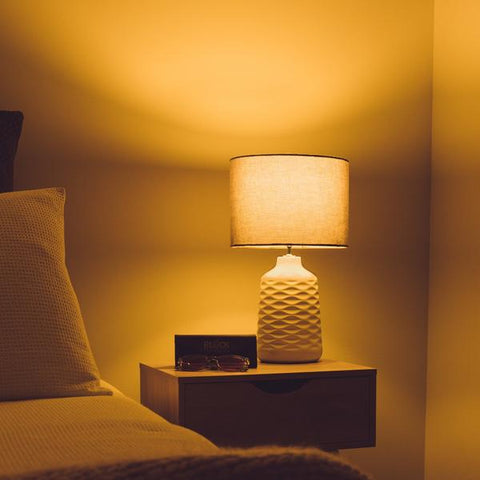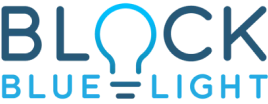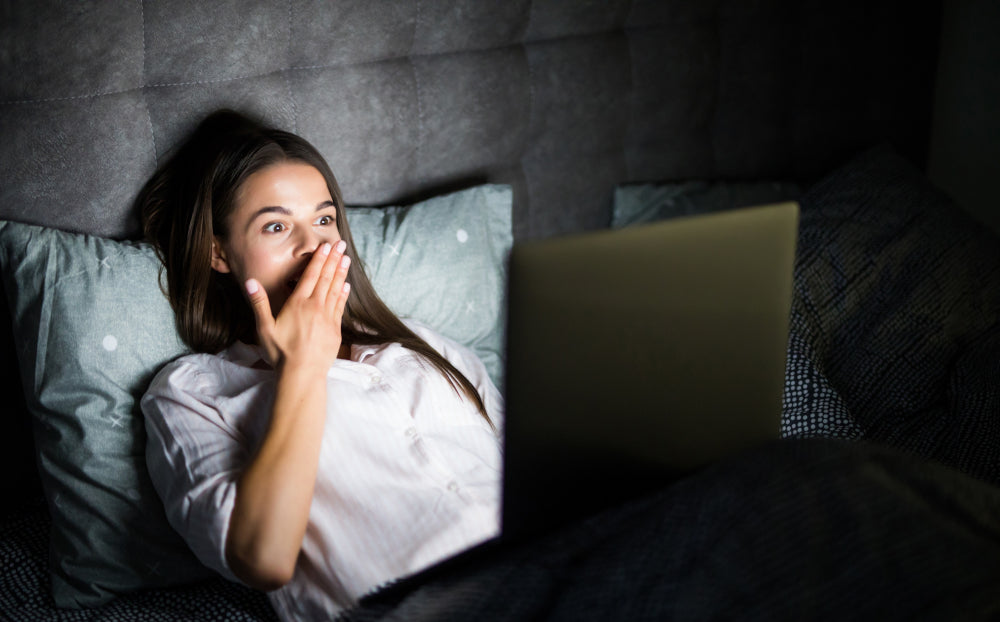Poor sleep makes you tired, irritable, and unhappy.
You don't need me to tell you that.
But what if I also told you it also makes you fat, sick and wrinkled? Even if you don't feel tired.
So what's biggest killer of your perfect night's sleep? Avoiding blue light.
What's the one hack guaranteed to give you the best sleep of your life? Getting enough blue light.
Let me explain...
How light and your eyes control all your “sleep switches”
At some point you’ve probably laid awake late at night desperately wishing for a “go to sleep now” switch to flip.
Maybe you've also wished you had a “wake up!” switch to flip in the morning after pressing that snooze button for the third time.
What most people don’t realise is the human body has these switches built in. The problem is we all forgot how to use them properly. Even worse we keep flipping them at the wrong times.
These switches control your “circadian rhythm”. Your biological alarm clock. If you want great sleep and a productive day you need to take back control of this rhythm first.
Let’s take a look at what a healthy rhythm looks like[1]:
- You wake up in the morning. Cortisol, the stress hormone, spikes and you feel wide awake.
- Through-out the day adenosine builds up in the body. The longer you’re awake, the more adenosine, and the more drowsy you feel. Caffeine keeps you awake by blocking adenosine receptors.
- Later at night your circadian rhythm figures it’s time to sleep soon and starts producing melatonin, the primary sleep hormone. Melatonin isn’t just for sleep but we’ll talk about that later.
- Bedtime. While you sleep your adenosine is cleared out so you feel fresh for the morning.
Before looking at how we’re accidentally messing this all up, let’s see how our bodies normally set this rhythm for us:
Your eyes have three kinds of receptors. “Rods” which give you night vision. “Cones” which let you see colour. Lastly “intrinsically photosensitive retinal ganglion cells” (ipRGCs) which don’t help you see anything[2]!
But...
When your IpRGCs are exposed to morning sunlight they release a photopigment “melanopsin”. This tells part of our brain, the Suprachiasmatic nucleus (SCN), that it’s light outside. That it’s time to suppress your melatonin production and feel wide awake.
It’s mainly blue light (around 480nm in wavelength) from the morning and midday sunlight that suppresses our melatonin. Especially from above the eyeline (most of our ipRGCs sit at the bottom of our eyes where sunlight usually hits[3]).
Moonlight isn’t bright enough to suppress our melatonin. 0.05–0.1 lux, not enough to affect our sleep.
Evening light, candlelight and firelight don’t contain enough of the blue wavelengths to keep us awake. Some studies even suggest that the red light you get from a sunset could stimulate melatonin and give you an even deeper sleep[4].

Wavelengths of light from natural sources
So light controls our primary circadian rhythm via the eyes and the SCN. This is the main reason you’ll feel tired or alert at any time of the day.
We also have a peripheral circadian rhythm[5] which has a smaller but important effect controlled by:
- Changes in temperature
- Activity
- Meal timing
But these biological cues are harder to trigger in a way which really damages your sleep.
Why messing with these switches is destroying your sleep, and why you aren’t really a “night owl”
Let’s say tonight you’re relaxing in front of the TV, or browsing Facebook. Maybe you even read somewhere that a book before bed can be a great idea and you fire up your kindle.
All those electrical devices are emitting the same blue light your eyes rely on to tell your brain it’s the middle of the day. Even if you aren’t using any of those devices late at night, your overhead lighting still emits plenty of melatonin suppressing light.
You won't be able to see it with the naked eye. But the white light made by LED, halogen and fluorescent lighting can emit just as much or even more of these “wake up” wavelengths than sunlight.

So now it’s 10PM and your white LED overhead lights are on. Your eyes are telling your brain it’s daytime. No melatonin for you yet. But the other “sleepy” hormone adenosine has been building up in your body all day so you’re...kinda tired?
Just tired enough to lay down in bed but (if you’re unlucky) not tired enough to fall asleep right away. It might take you hours to get to sleep if you’re especially sensitive to blue light.
So you don’t get enough sleep, the sleep you get isn’t very restful, and come morning? Your body hasn’t gotten rid of all that adenosine from the previous day. You’re exhausted. You have to self medicate with that adenosine blocking coffee all day.
The good news is, if this is you, you probably don’t have insomnia.
The bad news is you probably have “delayed sleep phase syndrome”[6].
If this is the case then a deeper, uninterrupted sleep is absolutely possible. It just takes a few changes to night-time habits and lighting which we’ll talk about in a bit. Don’t worry! We’ll tell you everything you need to know.
“But I’m just a night owl” I hear some of you saying already. “Sleeping later is just normal for me”.
Studies[7][8] show when you take a group of “night owls” and “morning larks” camping, away from all that artificial light, they all get great sleep. And they all start naturally going to bed and getting up at pretty much the same time (with the sun).
So why are you a “night owl”? Your sleep is just more sensitive to the effects of blue light at night compared to everyone else.
There are a few theories why. One is that some people’s eyes block out blue light better than others [9].
Your “macular pigment” is the natural blue light filter in your eye. The problem is very few of us have a pigment which filters out enough blue to protect our melatonin at night.
If you don’t feel like camping to prove all this to yourself you could try some blue light blocking glasses in the evening. One study found improved sleep and productivity from managers and employees when they tried it...especially for the night owls [10].
So no excuses. If you are tired you need to fix this.
Not feeling tired? These are all the ways blue light at night is still wrecking your health
Maybe you aren’t feeling tired. Maybe your sleep isn’t being damaged enough to notice, or maybe you’ve gotten so used to being a little tired that that's your “normal”.
Well if you needed any more convincing, here are just some of the ways unhealthy lighting will still be damaging your health tonight:
- Increased risk of cancer. The International Agency for Cancer Research considers circadian disruption a “probable carcinogen”[11]. There are also studies linking blue emitting LED street lighting to cancer rates in Spain[12]. Indirectly we know melatonin helps prevent and treat cancer[13] so anything we can do to preserve our melatonin at night helps out.
- Stress and low mood. No-one is in the best of moods after a bad night’s sleep. Even if you aren’t fatigued disrupted sleep can raise your stress related hormones[14]. Unhealthy night-time lighting also puts you at risk of depression[15].
- Making you fat and killing your “gym gains”. Disrupted sleep makes you hungrier so you make bad food choices[16]. It alters the way you metabolise the food you eat. Even if you stick to your new diet you might end up heavier compared to if you had gotten a good night's rest[17]. Of course if you’re trying to gain weight in the gym you should know most human growth hormone is made during deep sleep. Unhealthy lighting means missing out on hard earned muscle growth.
- Skin damage and wrinkles. Sleep is important for keeping skin elastic, hydrated and youthful. A disrupted night’s sleep can lead to earlier visible ageing[18]. Excessive evening blue light from devices can also directly damage the skin[19].
Why you still need blue light (and why it should replace your morning coffee)
With all that doom and gloom you might think we’re trying to demonise blue light altogether.
Not at all!
Blue light is essential to your sleep and your health. It’s all in the timing and the dose.
We need a sensible amount of blue light in the morning to tell our circadian rhythm it’s time to wake up.
At certain times of the year when we can’t get enough blue light from the morning sun our rhythms can get confused. Some of us develop depression and Seasonal Affective Disorder[20].
The treatment?
Blue light in the AM! Delivered with a “lightbox” or dawn simulator.
Devices which emit lots of these wavelengths are also used to stay alert in the morning. Studies show these devices beating coffee[21] when it comes to improving your reaction times and good decision making.
So now we know blue light is your worst enemy and your best friend. So keeping this in mind, how do we beat fatigue for good...
Your blue light checklist: What to do and when to do it for deep, uninterrupted sleep
We’ll cover everything you need to know here. Feel free to bookmark this page and return to it later for each step of your journey towards finally getting the best night’s sleep of your life:
- As soon as you wake up let some sunshine in (if you can). Let the sun shine down on your eyes to tell your body it’s time to start the day. If you’re looking to really go the extra mile then do a few reps of an easy exercise to spike your cortisol. Really make sure your brain gets the message.
- Get some midday sunlight, Especially in the summer. Vitamin D is essential for good health and that includes your sleep[22]. The best time to get it is when the sun is highest in the sky around noon.
- Put on a good pair of blue blocking glasses one to two hours before bedtime. This is the most important and well studied method of protecting against damage caused by blue light at night[23]. It’s important to note transparent “blue light glasses” or “computer glasses” won’t protect your sleep at all. Before you buy a pair check the provided spectrometer data. Almost all light 525nm or less should be blocked. This means the lenses should be visibly amber or red and anything you see through them should look amber or red. Our glasses go even further and block 100% of blue and green light from 380-550nm to fully protect your sleep.

- Install blue light dimming software like f.lux or Iris on your devices to protect your skin in the evening. Just know software like this can’t protect your eyes like blue light glasses. Because of the way LED screens work it’s impossible to remove enough blue light[24]. Only a physical filter like our blue blocking screen filter can fully block the blue wavelengths.
- Close the curtains at night. Unless you live somewhere very rural you probably have some kind of street lighting outside your window. Block out as much artificial light as you can with curtains. “Blackout” curtains work great for this.
- Install circadian safe overhead lighting eg. our range of blue free lighting bulbs and lighting products. If you’re wearing blue filtering glasses already this won’t necessarily help you get better sleep, but it’s another step to protect your skin at night. It also helps if your glasses slip off for whatever reason. Even a glimpse of light from the wrong wavelengths can delay night-time melatonin production.

- Wear a sleep mask at night. Just in case any artificial light leaks through your curtains. A 100% block out sleep mask will protect your eyes while you sleep.
Maybe that sounds like a lot to think about. Don't worry, it's best to...
Start with the basics
Begin with a good pair of blue light blockers 1-3 hours before bed. Protecting your eyes against blue light in the evening is the most important thing you can do to minimise the harmful effects of blue light on your sleep. And it doesn’t take any change in personal habits.
After that, self experiment. See what helps you the most. Maybe you need to wear them earlier in the evening, maybe you can leave it a little later. Maybe a morning sunlight and exercise combo is the best hack for you.
Small steps, one habit at a time. Revisit our list when you’re ready for the next step.
It'll be worth it when you banish fatigue for good and start feeling the real benefits of good, deep sleep.
References:
- Luppi P-H, Fort P. Sleep-wake physiology. Handb Clin Neurol. 2019;160:359–70.
- Paul KN, Saafir TB, Tosini G. The role of retinal photoreceptors in the regulation of circadian rhythms. Rev Endocr Metab Disord. 2009 Dec;10(4):271–8.
- Lasko TA, Kripke DF, Elliot JA. Melatonin Suppression by Illumination of Upper and Lower Visual Fields. J Biol Rhythms. 1999 Apr 1;14(2):122–5.
- Zhao J, Tian Y, Nie J, Xu J, Liu D. Red Light and the Sleep Quality and Endurance Performance of Chinese Female Basketball Players. J Athl Train. 2012;47(6):673–8.
- Oike H. Modulation of circadian clocks by nutrients and food factors. Bioscience, Biotechnology, and Biochemistry. 2017 May 4;81(5):863–70.
- Sateia MJ. International classification of sleep disorders-third edition: highlights and modifications. Chest. 2014 Nov;146(5):1387–94.
- Wright KP, McHill AW, Birks BR, Griffin BR, Rusterholz T, Chinoy ED. Entrainment of the human circadian clock to the natural light-dark cycle. Curr Biol. 2013 Aug 19;23(16):1554–8.
- Stothard ER, McHill AW, Depner CM, Birks BR, Moehlman TM, Ritchie HK, et al. Circadian Entrainment to the Natural Light-Dark Cycle across Seasons and the Weekend. Current Biology. 2017 Feb 20;27(4):508–13.
- Hammond BR. The Visual Effects of Intraocular Colored Filters. Scientifica. 2012 Sep 30;2012:e424965.
- Guarana CL, Barnes CM, Ong WJ. The effects of blue-light filtration on sleep and work outcomes. J Appl Psychol. 2020 Jul 13;
- Touitou Y. Light at night pollution of the internal clock, a public health issue. Bull Acad Natl Med. 2015 Oct;199(7):1081–98.
- Garcia-Saenz A, de Miguel AS, Espinosa A, Costas L, Aragonés N, Tonne C, et al. Association Between Outdoor Light-at-night Exposure and Colorectal Cancer in Spain. Epidemiology. 2020 Sep;31(5):718–727.
- Li Y, Li S, Zhou Y, Meng X, Zhang J-J, Xu D-P, et al. Melatonin for the prevention and treatment of cancer. Oncotarget. 2017 Jun 13;8(24):39896–921.
- Interactions between sleep, stress, and metabolism: From physiological to pathological conditions. Sleep Science. 2015;8(3):143-152.
- Obayashi K, Saeki K, Iwamoto J, Ikada Y, Kurumatani N. Exposure to light at night and risk of depression in the elderly. J Affect Disord. 2013 Oct;151(1):331–6.
- Greer SM, Goldstein AN, Walker MP. The impact of sleep deprivation on food desire in the human brain. Nat Commun. 2013;4:2259.
- Cheung IN, Zee PC, Shalman D, Malkani RG, Kang J, Reid KJ. Morning and Evening Blue-Enriched Light Exposure Alters Metabolic Function in Normal Weight Adults. PLoS One. 2016;11(5):e0155601.
- Jang SI, Lee M, Han J, Kim J, Kim AR, An JS, et al. A study of skin characteristics with long-term sleep restriction in Korean women in their 40s. Skin Res Technol. 2020 Mar;26(2):193–9.
- Dong K, Goyarts EC, Pelle E, Trivero J, Pernodet N. Blue light disrupts the circadian rhythm and create damage in skin cells. Int J Cosmet Sci. 2019 Dec;41(6):558–62.
- U.S. Department of Health and Human Services. NIMH » Seasonal Affective Disorder [Internet]. [cited 2021 Apr 10]. Available from: https://www.nimh.nih.gov/health/publications/seasonal-affective-disorder/index.shtml
- Beaven, C., & Ekström, J. (2013). A Comparison of Blue Light and Caffeine Effects on Cognitive Function and Alertness in Humans. Plos ONE, 8(10), e76707. doi: 10.1371/journal.pone.0076707
- Romano F, Muscogiuri G, Di Benedetto E, Zhukouskaya VV, Barrea L, Savastano S, et al. Vitamin D and Sleep Regulation: Is there a Role for Vitamin D? Curr Pharm Des. 2020;26(21):2492–6.
- Kimberly B, James R. P. AMBER LENSES TO BLOCK BLUE LIGHT AND IMPROVE SLEEP: A RANDOMIZED TRIAL. Chronobiology International. 2009;26(8):1602-1612.
- Best blue light filter apps for visual comfort: Iris & f.lux [Internet]. GLARminY. 2017 [cited 2021 Apr 10]. Available from: https://glarminy.com/iris-flux-review/





